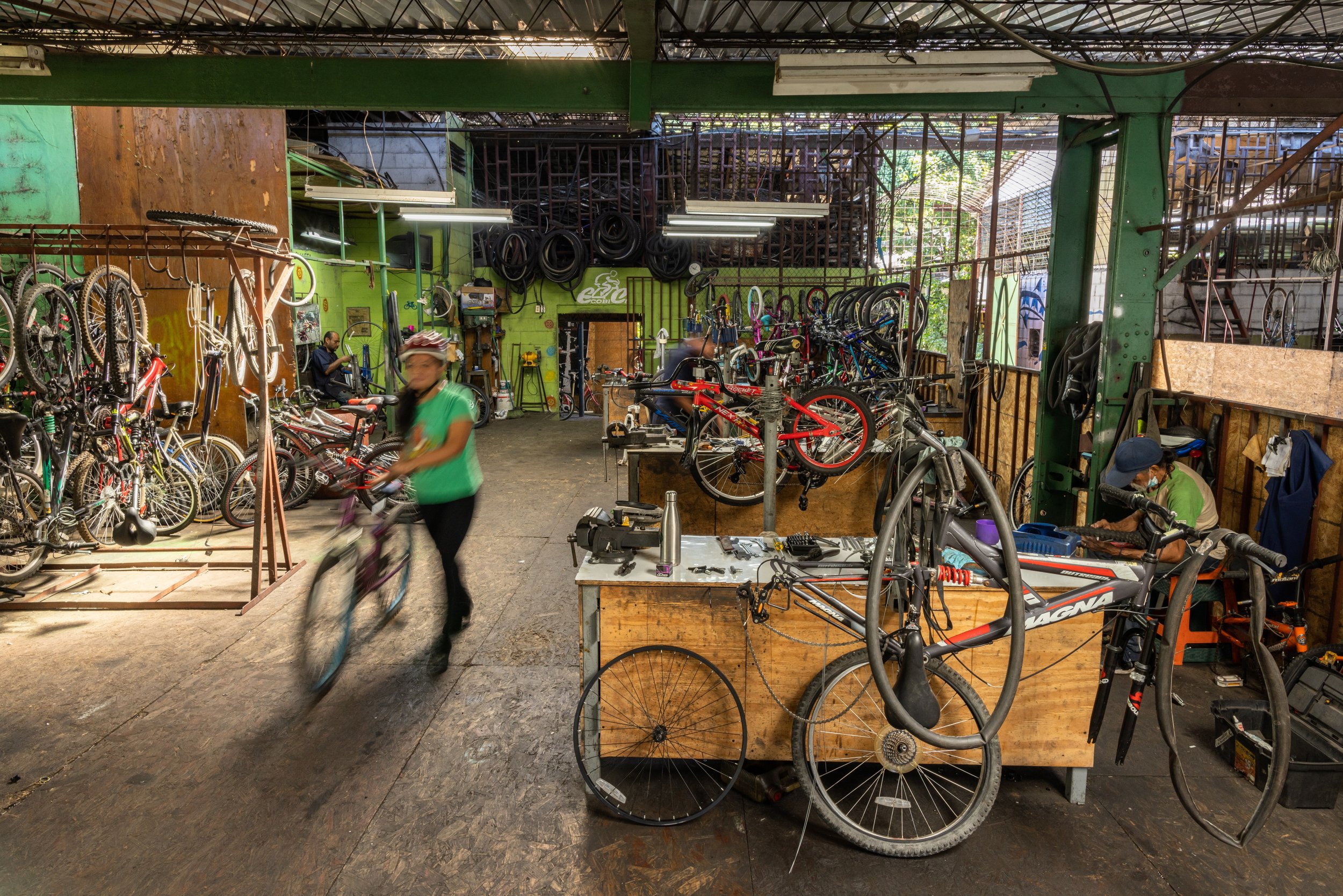
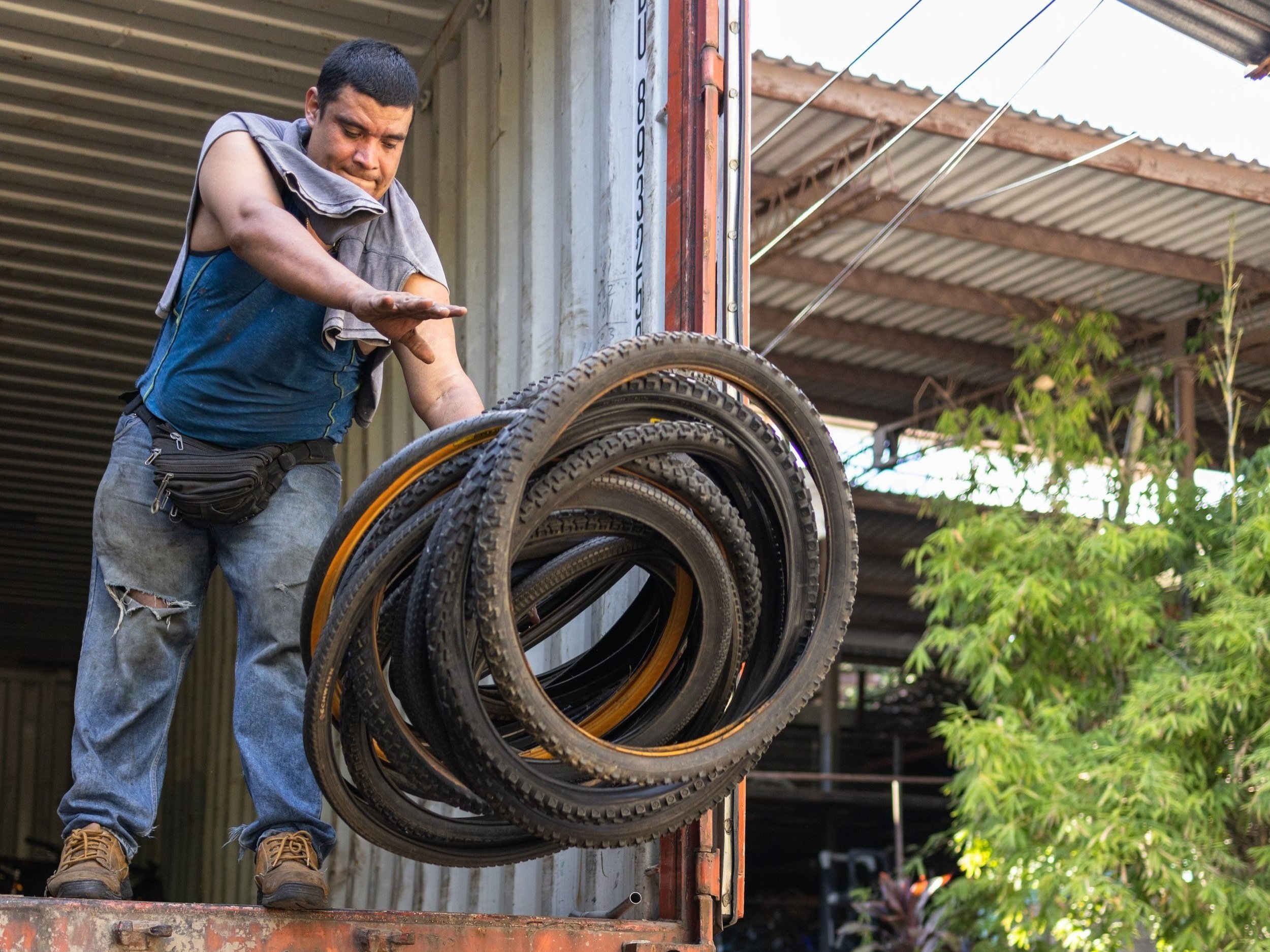
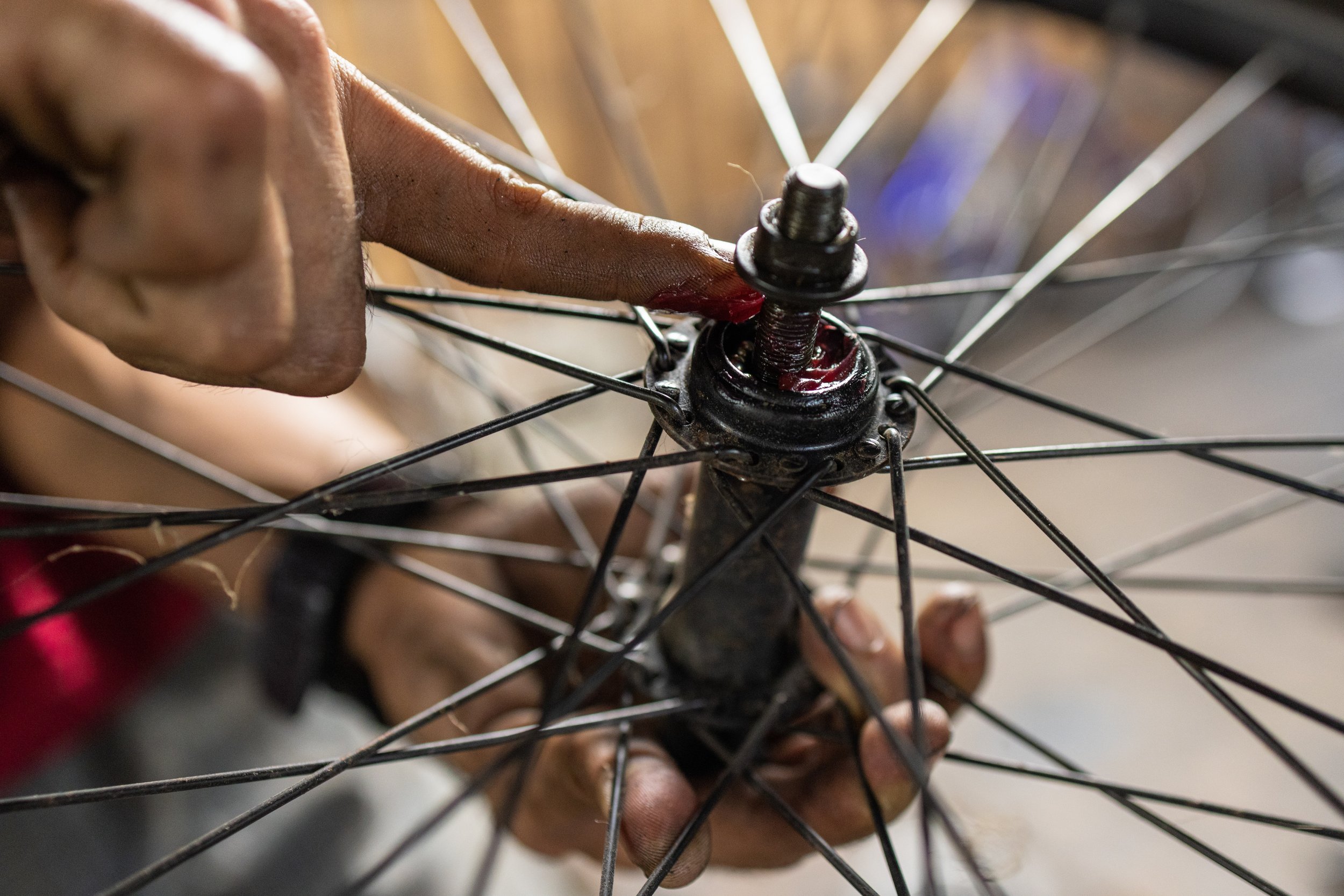
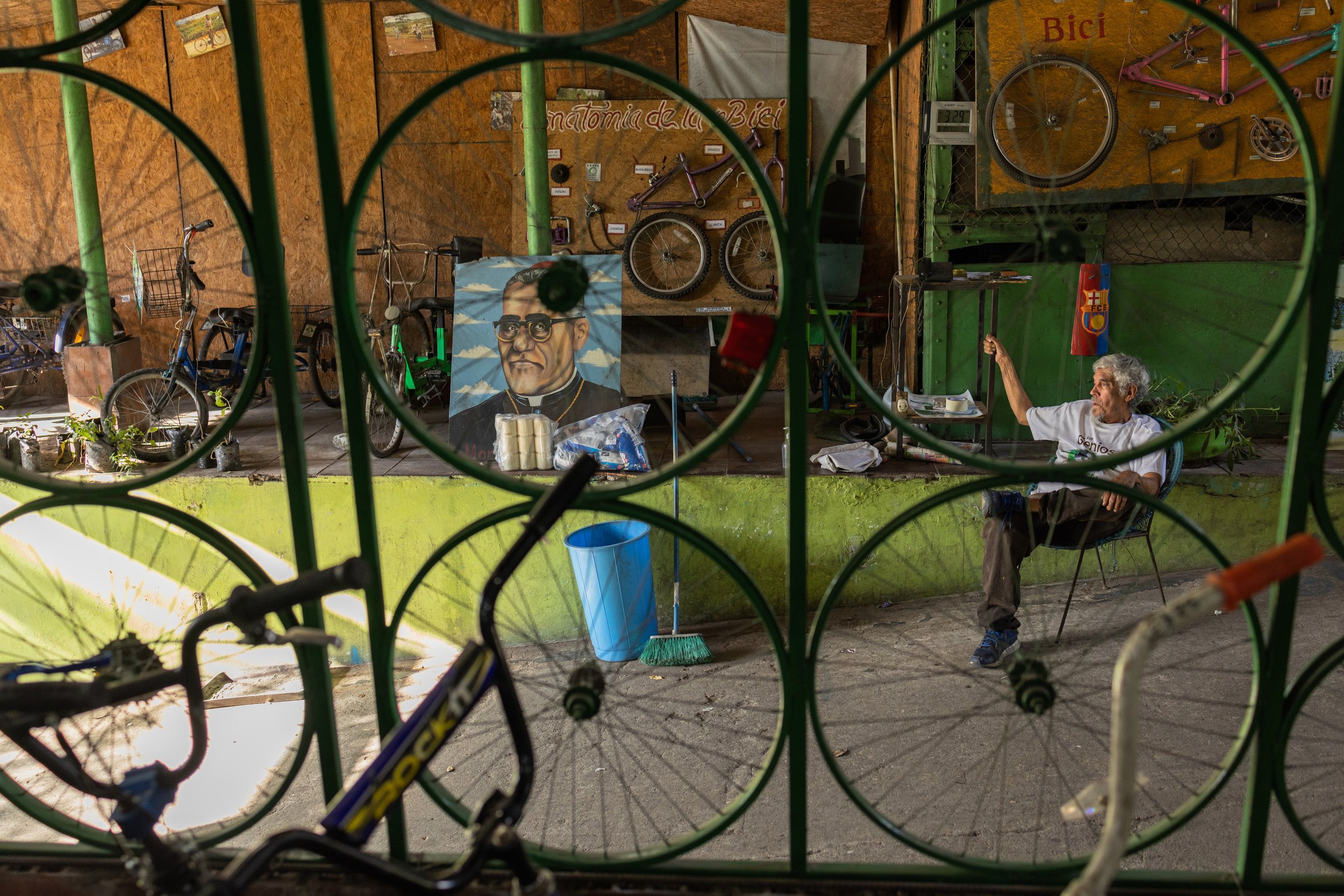
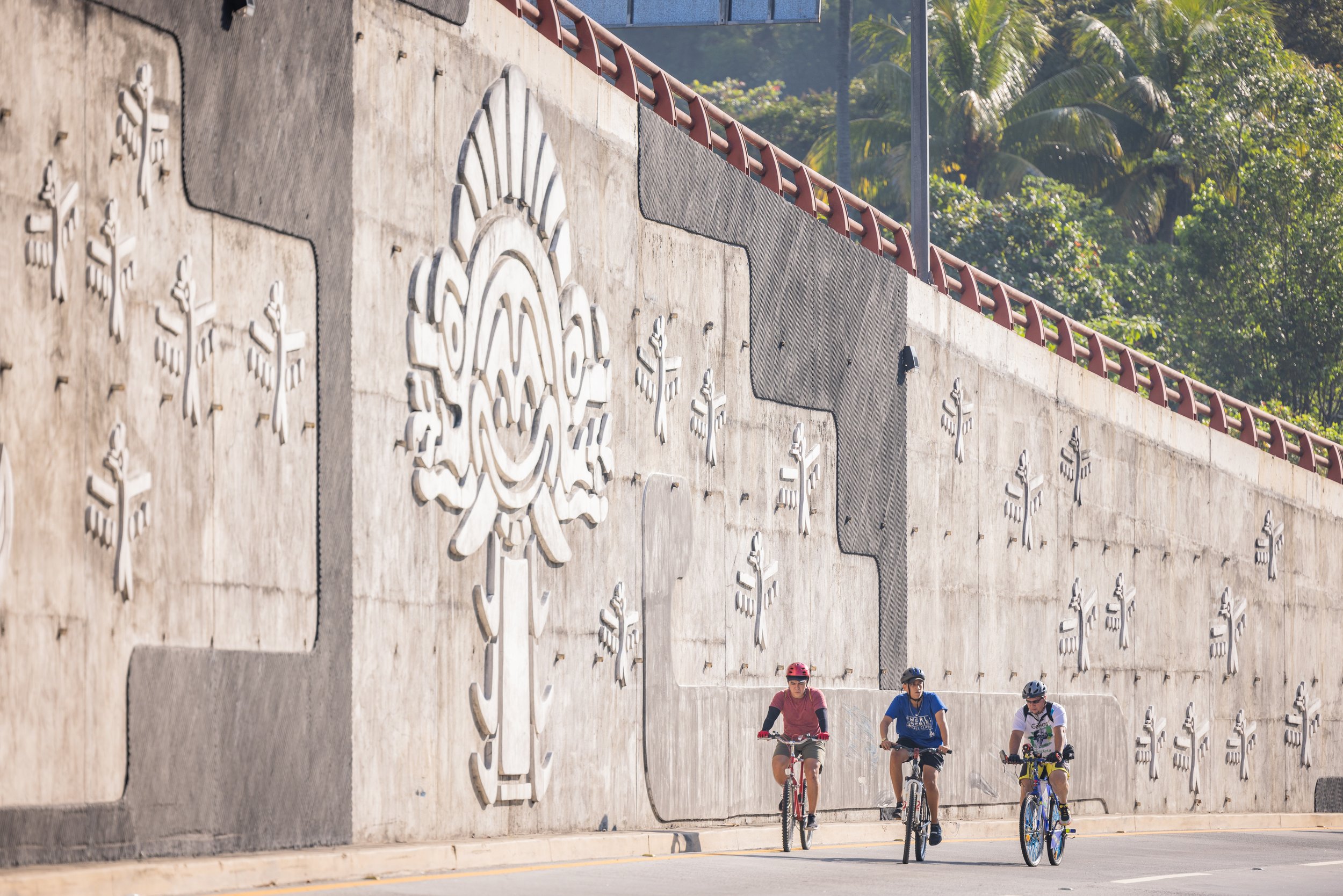
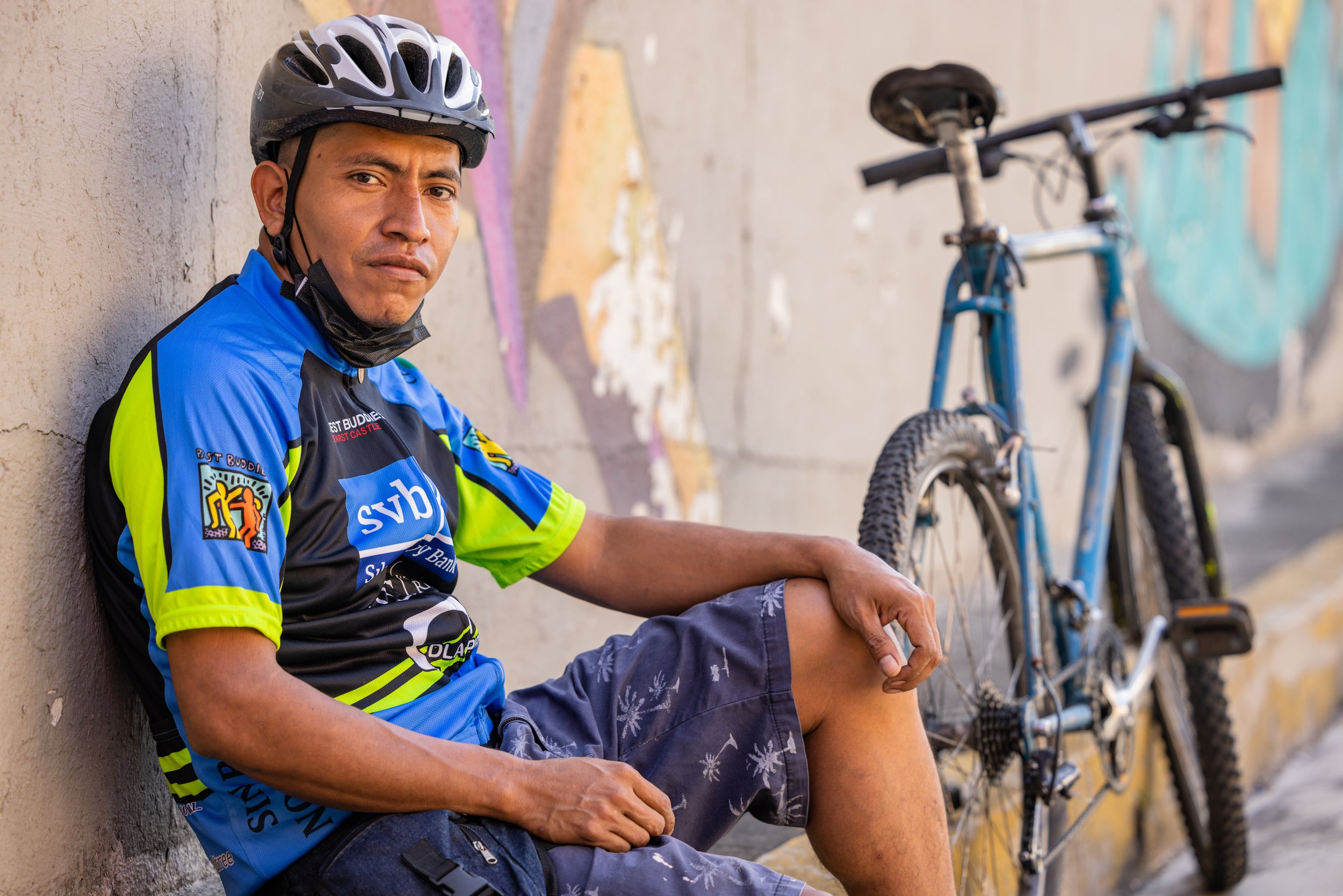
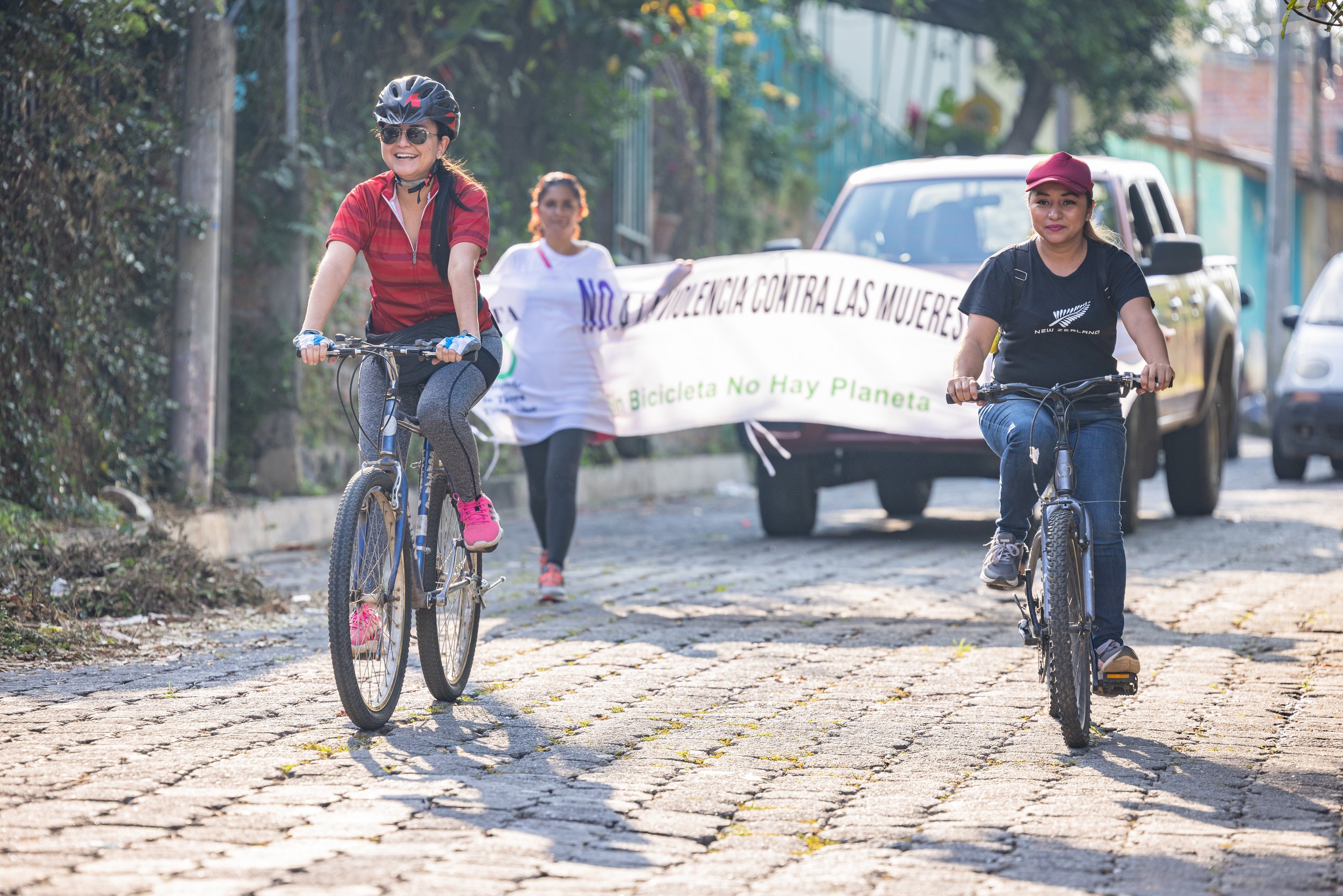
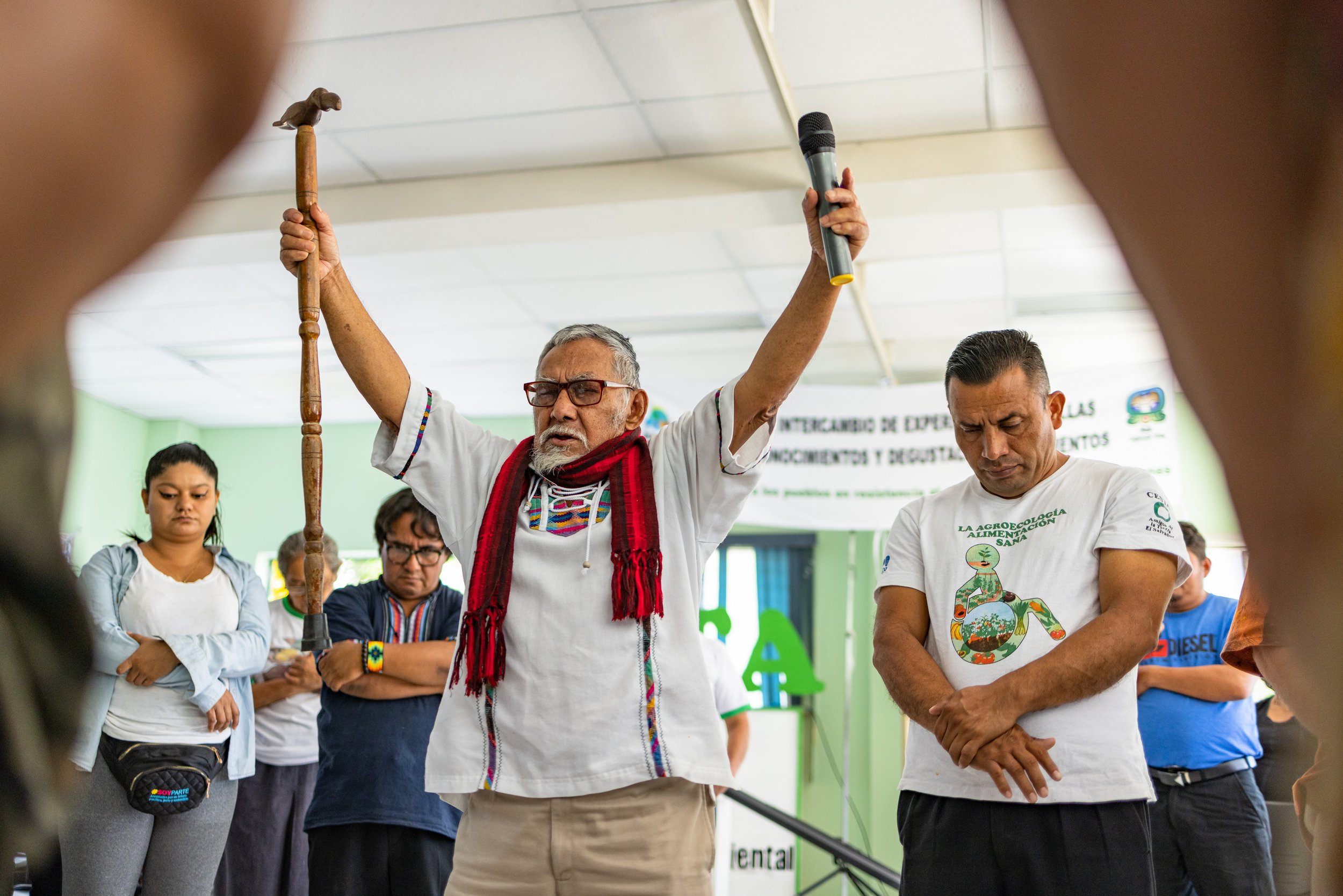
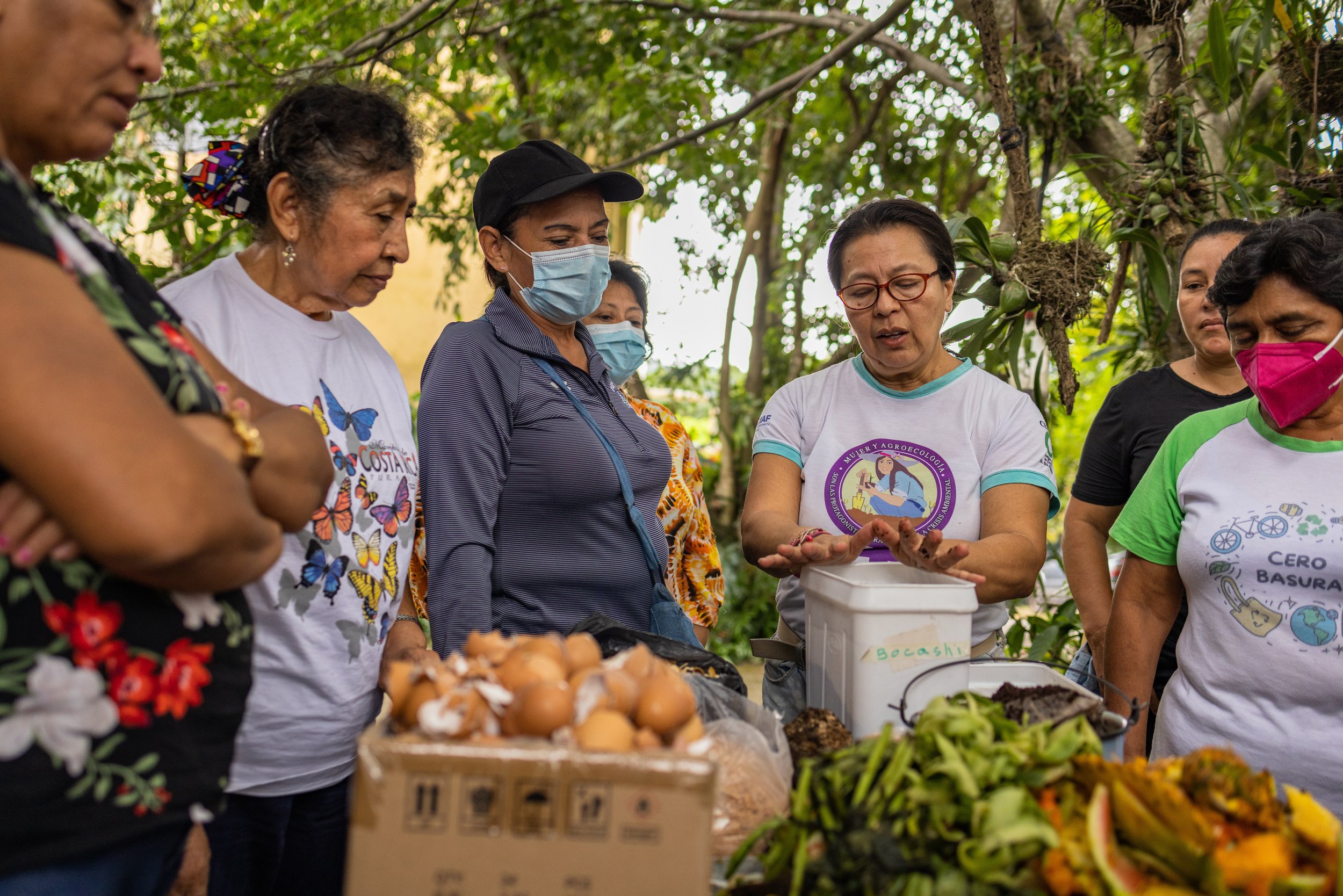
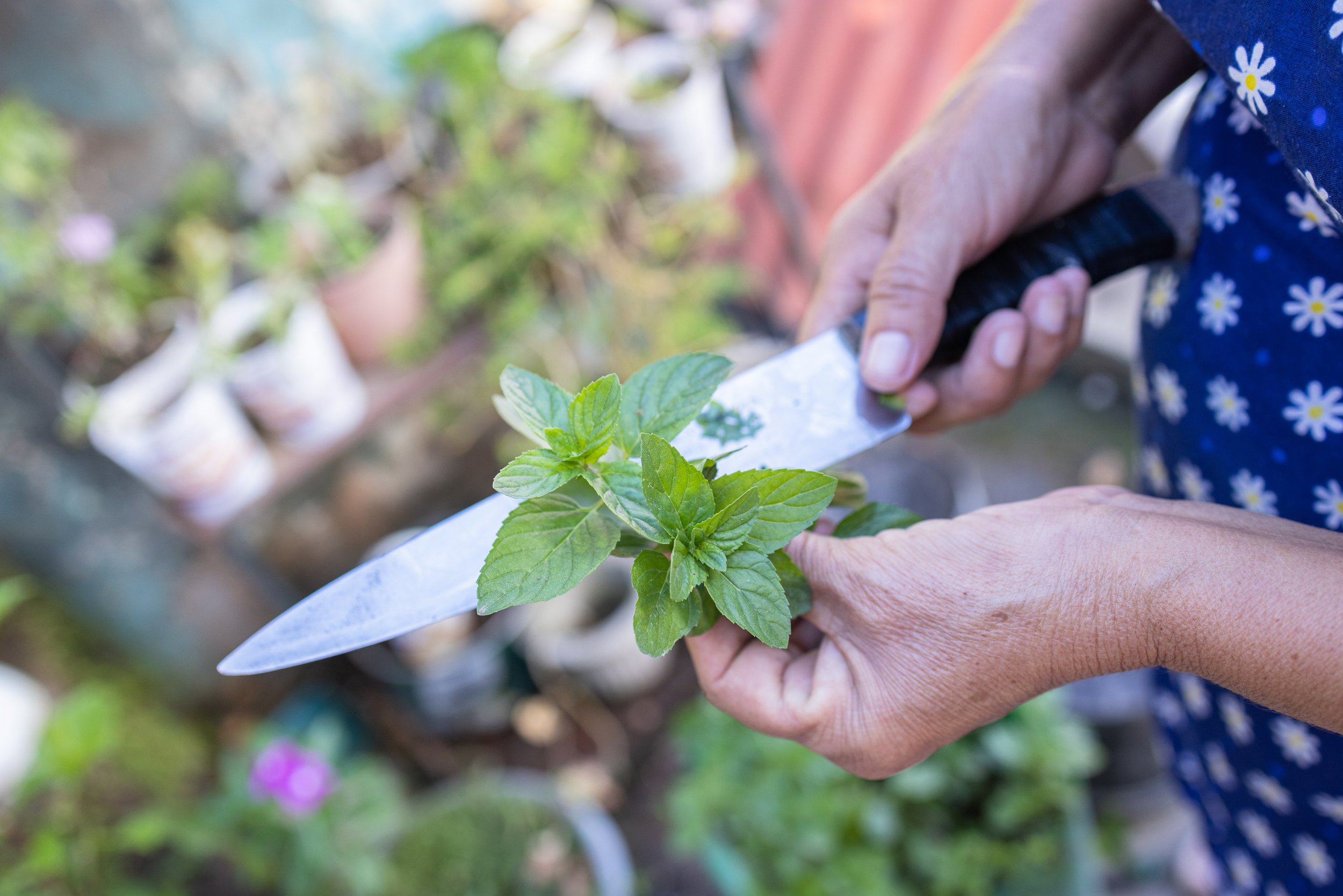
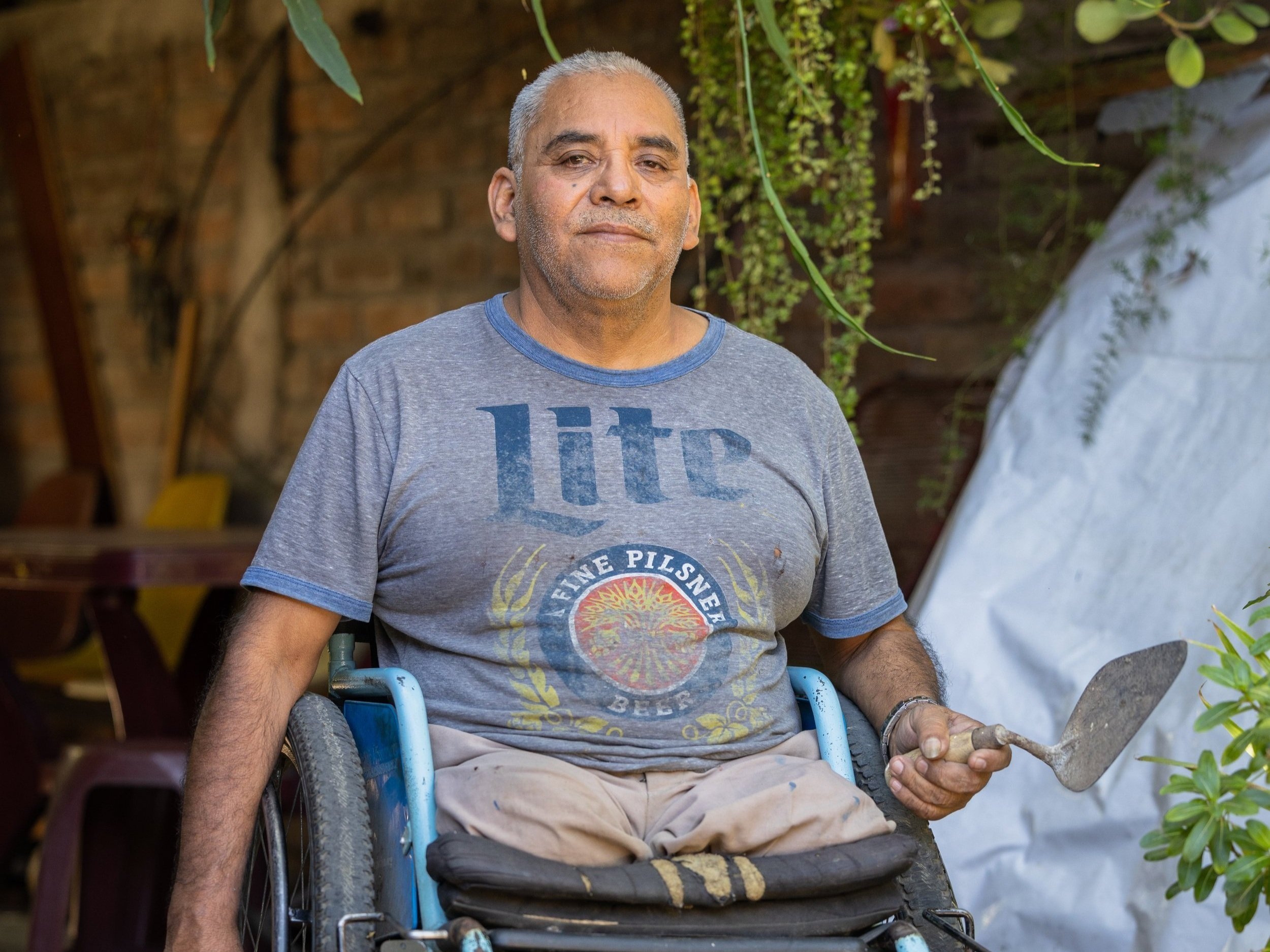
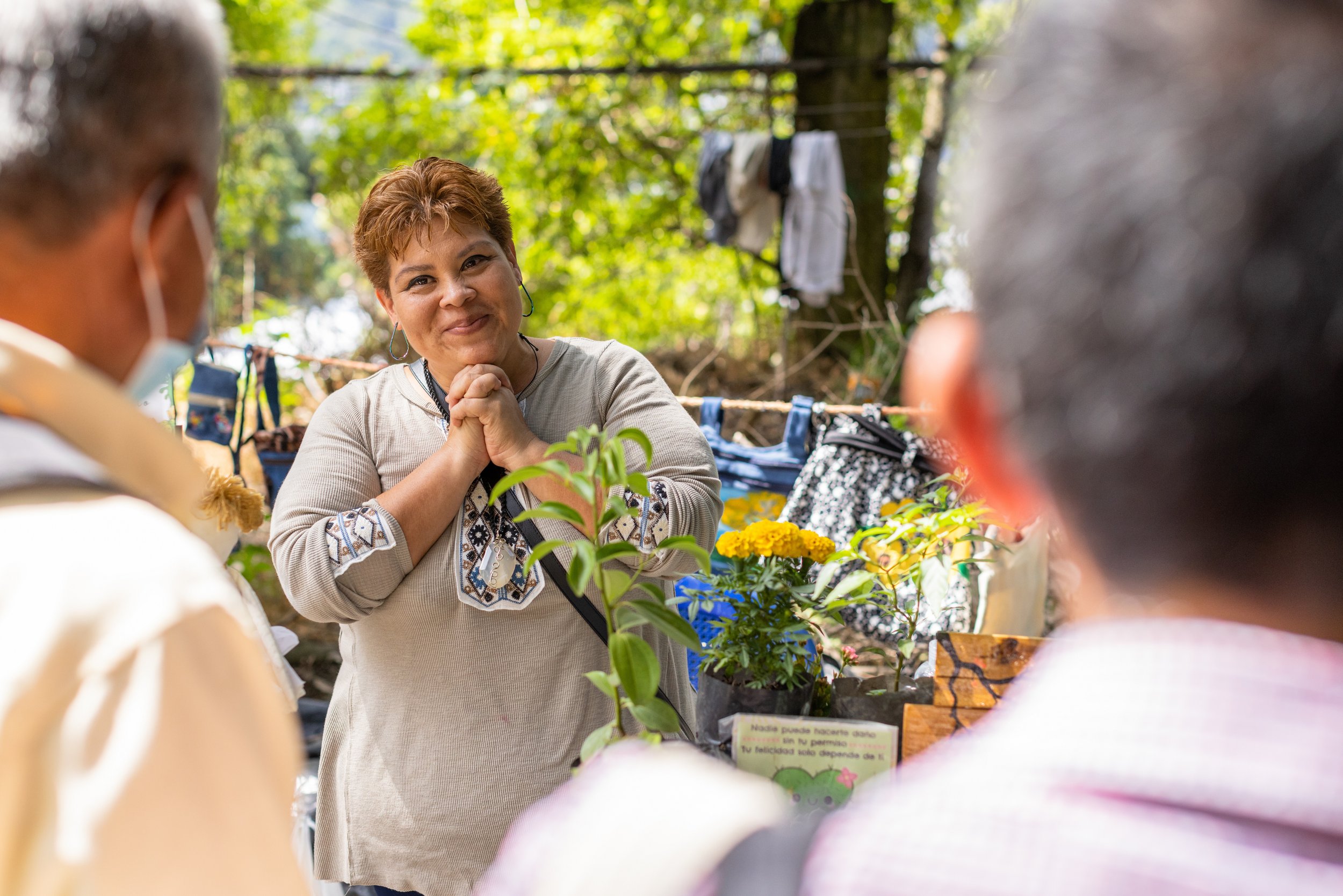
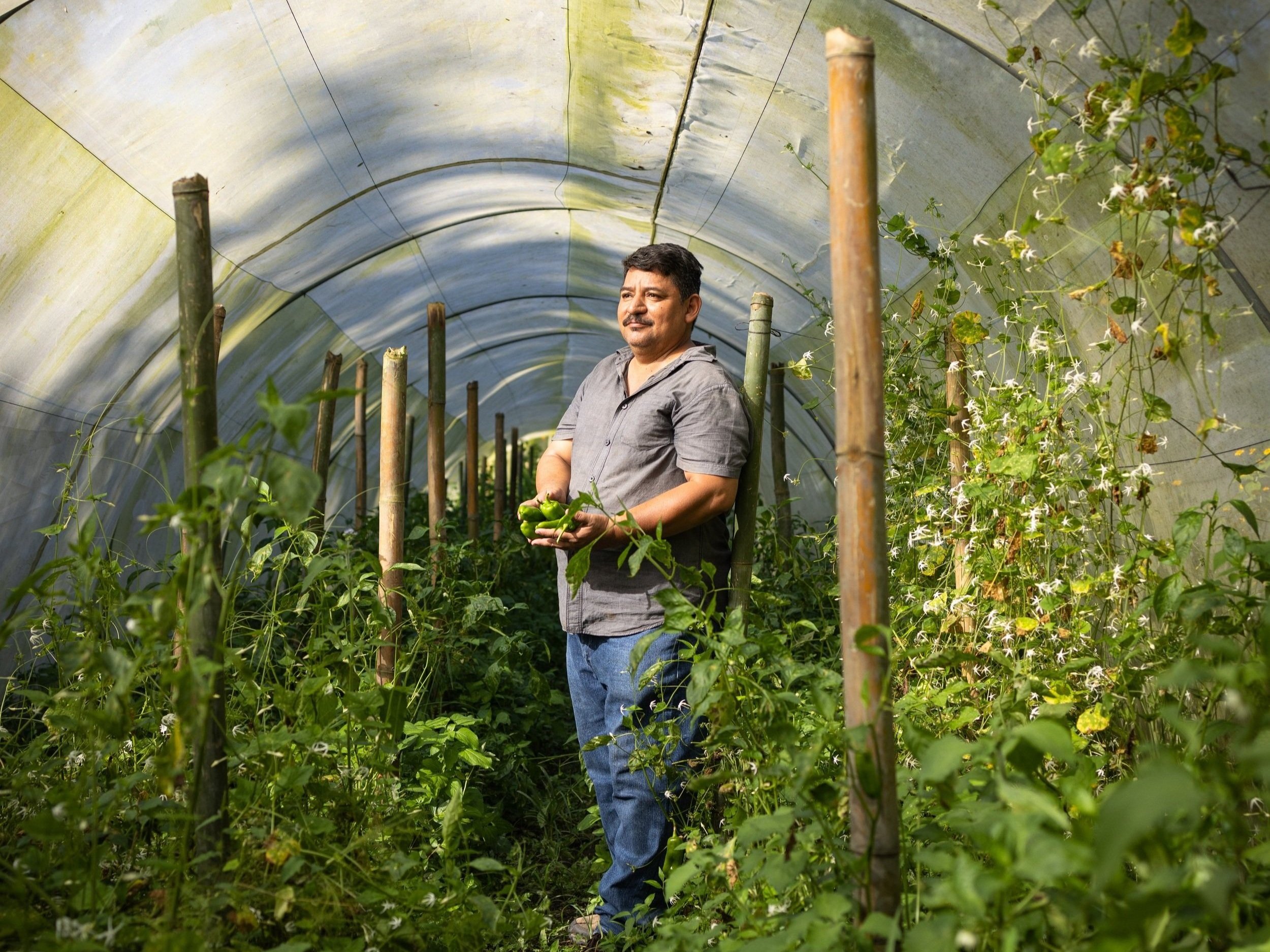
WORDS & IMAGES BY JAMES KAO, EDITED BY NEHAA BIMAL
Erick Avalo is one of many survivors of the brutal Salvadoran civil war that claimed his left leg. Over 9000 people were “disappeared”/murdered during that period, which started in the 1980s and lasted a gruelling twelve years. As the nation began its healing, so did Erick. However El Salvador only began enforcing the new workplace law for the Inclusion of People with Disabilities in 2021 and for many years, Erick found it difficult to find stable work.
Erick Avalos testing the spin of a rear wheel.
It was at the Salvadoran Center for Appropriate Technology (CESTA) that Erick finally found a role where he could learn bike mechanics and repair, as well as wheel-building. “I’ve worked here for 14 years now. I started out not knowing anything about bicycles. CESTA gave me the confidence to change my life and make me a better person. I’ve been able to move forward despite my disability and the challenges it poses,” says Erick, who carries out his work with great skill and dedication, sharing his expertise with interns at the bike shop.
Modesto Rivas, Heriberto Reyes Cortez and Adonay Martinez seated together at a wheel-balancing station.
CESTA is leading the movement for environmental protection, sustainable transportation and community-led resource management in El Salvador, combining an array of environmental and social programs with environmental and social justice activism.
A woman leading the seed exchange event.
Erick is now the lead foreman and mechanic at EcoBici, a CESTA program that has become a full-fledged bicycle repair shop in San Marcos. CESTA imports over 4,000 used bicycles into San Salvador each year, and these bicycles get refurbished in the EcoBici program that supports people like Erick who were affected by the war. The mechanics provide repair services and bicycle maintenance for the local cycling community, and they also provide training for everyone—including women, at-risk urban youth and Disabled people—to increase their skillsets and opportunities for employment.
Modesto Rivas installing a front wheel
The bikes also provide affordable transportation to thousands of families each year. CESTA is active in promoting bicycle use in urban areas through their “Sin Bicicleta No Hay Planeta” (“Without Bicycles There Is No Planet”) program. Bicycles are a viable alternative to automobiles in addressing emissions and climate change, however, heavy traffic volume and the lack of bicycle lanes in San Salvador make community bike rides difficult and unsafe. The EcoBici store has the potential to support a bicycle-friendly community through the commercialization of bicycle use. The store sells affordable bike accessories along with donated and refurbished bikes to low-income Salvadoran workers and students who need them to commute to work and school.
Heriberto Reyes Cortez scans for traffic hazards as he leads CESTA cyclists through San Salvador.
What makes CESTA stand out is its holistic and intersectional approach to community healing and wellness, with programs that range from clean, affordable transportation to disability rights advocacy, traditional medicine research and education, community land management, environmental conflict mediation, and food security.
Two women cooperative members pose with their harvest and boy.
“I consider bicycles more than a job, it’s an integrated lifestyle. I get to work with the best means of transport ever invented and I am passionate about the sport of cycling which I consider the best. My workplace is really one-of-a-kind. It’s hard work certainly, but it’s also simple, low budget and uncomplicated. It makes me happy and for that I am very thankful,” says André Mendoza, who has been a bike mechanic at CESTA since 2018.
Andre Mendoza posing with a bike.
You can learn more and support CESTA’s work by visiting the link below.












